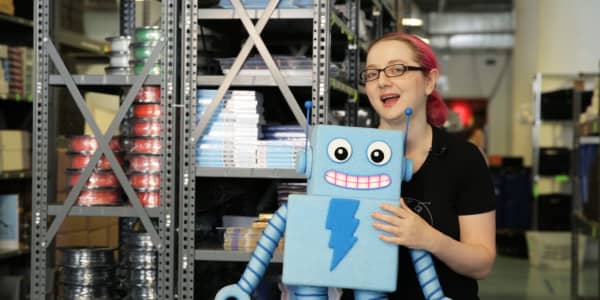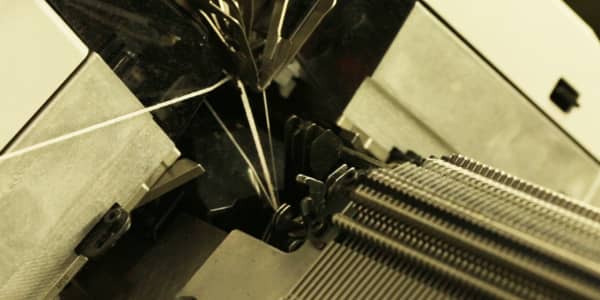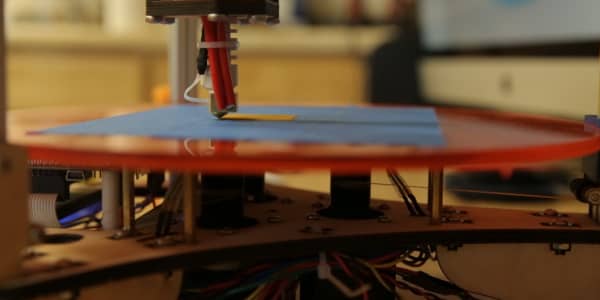Robots build cars, vacuum floors, remove explosives, perform surgery.

There's still an awful lot they can't do. MIT has long been working on a robot that can fold laundry. Robots generally lack complex perception and manipulation, creative intelligence and social intelligence, according to Oxford University.
Bu machines may be about to rise up to the next level.
Starting Friday, DARPA—the research arm of the Defense Department—hosts the Robotics Challenge Finals in Pomona, California. DARPA is offering a first prize of $2 million, plus $1.5 million in other prizes, to the best teams from around the world that can successfully navigate a robot through a series of tasks in a simulated disaster. (Tweet This) The robots will receive wireless directions, but will be completely untethered, and communications will be intermittent, just like in a real disaster.
Read MoreStephen Hawking warns that AI threatens mankind
"What we're doing with the DARPA Robotics Challenge is we're trying to perform very complicated tasks in a very complicated environment," said Todd Danko of Lockheed Martin's Advanced Technology Laboratories. He's the lead scientist on Team Trooper, which includes the University of Pennsylvania and Rensselaer Polytechnic Institute.
"Humans are very good at reasoning, especially with imperfect information, and robots are very good at measuring an environment and planning very specific motions in that environment," said Danko. "And, of course, they're very good at being in places that we don't want to put humans because it would be dangerous."
CNBC got inside Team Trooper's lab in Pennsauken, New Jersey, last month as engineers prepared for the finals. Like many of the teams competing, Lockheed and its partners are using an Atlas robot made by Boston Dynamics, owned by Google. Ironically, another Google-owned robotics company won an earlier competition leading up to the finals, but that team will not compete. Presumably, Google wants to steer its robotics business away from the military.
Danko laid out what the robots will have to do in order to win the $2 million first prize:
- Drive themselves to a disaster site
- Get out and walk to a door and open it (push or pull)
- Assess the disaster and complete some tasks, like cutting through a wall or opening a valve
- Walk over—or through—a debris field
- Climb stairs
- Complete a "surprise task"
All of that has to be done in an hour. In the preliminary competitions, Danko said the robots had 30 minutes to complete each task separately, and teams could tweak the robot in between tasks. This time, no touching, no tweaking. Once the competition begins, everything must be done in one hour, and if the robot falls down and can't get up, it's game over.
DARPA is not necessarily guaranteed access to the technology of the winning team. Gill Pratt, the DARPA official running the competition, explained in March that it's important to foster openness and collaboration. "As this technology becomes increasingly global, cooperating with the United States in areas where there is mutual concern, such as disaster response and homeland security, stands to benefit every country involved," he said.
Read MoreRobots: The new, low-cost worker
Danko said many of the competitors are talking to each other: "This program is creating a community of researchers that are trying to extend the state of the art of robotics."
Lockheed Martin hopes to use some of the technology developed during the robotics challenge for other projects, like new controllers. It's also using the competition as a recruiting tool, getting the word out that Lockheed works on cutting-edge technologies.
That's assuming the Team Trooper robot, "Leo," delivers.
"My biggest worry is having the complete system coming together and working smoothly," said Danko. "Tremendous progress is being made every day, but I really look forward to the day where everything comes together all at once."





